It’s 2024 and far too many of our fisheries here in the U.S. are in serious trouble. Fortunately, there are some positive steps each of us can take going forward. While not every suggestion below will be a good fit for every single angler, be sure to check as many as possible off the list this year.
Learn
It’s hard to have a positive impact if you don’t know what’s happening. Take the time to learn about the different threats to our fisheries, and especially about the threats to your local waters. Doing so will help you make informed choices and maximize your contributions.
Writer and conservationist Johnny Sain recently pointed out that we need to educate ourselves on all the major issues facing our fisheries, as well as the proposed solutions and the agencies and NGOs working to implement those solutions.
Join
Join at least one conservation organization focused on protecting our fisheries, then donate whatever time and money you can afford to help that organization achieve its goals. If you live in the United States, you might consider supporting Trout Unlimited, or American Rivers, or Bonefish & Tarpon Trust, or the Ocean Conservancy, or The Freshwater Trust, or the nonprofit group I run, Conservation Hawks.
Switch
Anthropogenic (human-caused) climate change is the single biggest threat to both our fisheries and our future. One way to address that threat, and to limit the amount of CO2 that you’re personally responsible for pumping into the atmosphere, is to make the switch from an internal combustion engine (ICE) vehicle to an electric vehicle (EV).
Five years ago you couldn’t purchase an electric pickup or an electric SUV with reasonable range. Now, with excellent new electric pickups from Ford and Rivian, and brand new electric SUVs from Rivian, Hyundai, Kia, Ford, Volkswagen, Tesla, BMW, Acura, Mercedes, Audi, Nissan, Toyota, Subaru and Volvo, anglers have plenty of choices. (In addition, Motor Trend just named the all-electric Chevy Blazer EV as its 2024 SUV of the Year.) Of course, not everyone needs — or can afford — a new vehicle right now. But if you can handle the expense, it’s time to stand up for our kids & grandkids and make the switch from fossil fuels to electric.
Carry
Carry a small garbage bag with you when you head for the water, then make a point of picking up trash for a few minutes before you drive home. Not only will you leave the landscape in better shape than you found it, but you’ll set a positive example for everyone who sees what you’re doing. Given the rampant insanity of modern American culture in 2024, we need more people who are willing to do the right thing in public. Good deeds beget other good deeds, so take pride in setting a solid example for other anglers.
Choose
Pick an issue that you feel is important and dive into it. Whether that’s climate change, or advocating for minimum in-stream flows, or better angling regulations, or invasive species, or dam removal, or pollution, or hatcheries — or something else entirely — is up to you. Scott Bosse of American Rivers suggests writing your state’s congressional delegation and asking them to restore the protections that the Supreme Court stripped from the Clean Water Act. Author and conservationist Hal Herring believes we can use the Farm Bill as an incentive for landowners to buffer wetlands and watersheds from agricultural runoff. River ecologist Jock Conyngham thinks we should revamp our National Flood Insurance Program. There are a ton of important issues out there, and while climate change towers over them all, we can each choose where to spend whatever time and energy we have to offer.
Fish
When you’re on the water, fish with empathy. Fish with respect. Fish with an uncommon and conscious decency, and with the knowledge that everything in the natural world is intimately connected to everything else. What does that look like? Pinch your barbs. Play your fish quickly. Keep them wet rather than taking them from the water. Limit your photos and videos, and skip the hero shots. If you pack it in, pack it out. Pay attention to the water temperatures and leave the trout alone when the water is too hot. Be grateful for our fisheries and focus on how fortunate we are to spend our free time out on the water. Long story short, our fishing is a gift and we should never lose sight of that fact.
Youth
Take a kid fishing. Take them to a pond, or a stream, or the ocean and show them what it’s all about. And then, when you’re out on the water, think about your responsibility to that particular young person, and to all of our kids & grandkids. It’s up to us to make sure that we protect and preserve our fisheries. Not just for ourselves, but for future generations. If we don’t stand tall right now, our children and grandchildren will suffer for our shortcomings. Please don’t let that happen.
Discuss
Talk to your friends, your family and your fishing partners about the importance of protecting of our fisheries, and about our responsibility to pass along healthy waters and landscapes to future generations. Numbers matter, and the more people who stand up for our fisheries, the better the odds that we’ll be successful. Oh, and when you’re talking to others, be kind and thoughtful. To quote Tim Romano of Flylab, “Remind folks that their everyday actions have major ‘downstream’ consequences for everything we love and cherish about our fisheries. Many times I think folks like us take this for granted and assume the weekend warrior understand these issues. Most don’t. Educate without browbeating or condescension.”
Call
Call your senators and your representative and ask them to do more to address the single biggest threat to our fisheries: climate change. You’ll notice that I didn’t suggest that you use e-mail, or text, or snail mail. Phone calls typically have a greater impact. Call your senators and representative at their office during regular business hours, then tell the staffer who answers the phone who you are, where you live, that you’re an angler, and that you expect Senator X or Representative Y to make solving the climate crisis a major priority going forward. You don’t need to yell, scream or swear — in fact, doing so may well be counterproductive — but be sure to tell the staffer that their boss needs to do more to limit our CO2 emissions and address climate. If you need help finding the right phone numbers, look here.
Vote
But don’t vote for just for anyone. Vote for candidates who care about our fishing, and who want to protect our waters and landscapes, and who are committed to addressing the climate threat while there’s still time to do so. It’s an election year and the single biggest thing we can do to protect our fisheries in 2024 is to vote for people who will fight for clean waters and healthy ecosystems, and who will tackle climate change rather than settling for the status quo. Your vote matters. Please use it, and use it well.
There’s one final thing I should mention before I wrap things up.
We don’t always focus on how incredibly fortunate that we are here in the U.S. We have a long and storied history of stellar fishing and plentiful access on our abundant public waters. That kind of angling freedom is a blessing.
With that freedom, though, comes responsibility. It’s our duty, both individually and collectively, to preserve and protect our fisheries for future generations. If we don’t stand up now and address the myriad threats to our angling, the legacy we pass down to our children and grandchildren will be grim. Please do your part and help protect our rivers, streams, lakes and oceans in 2024.



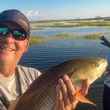
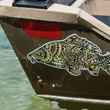




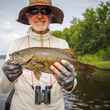
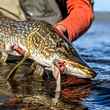

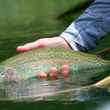



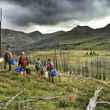
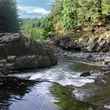

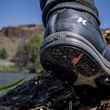

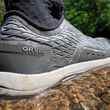
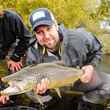

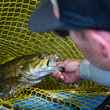


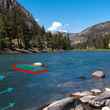
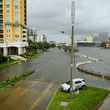
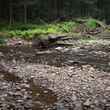

Comments
Lisa Rigdon replied on Permalink
Hey Todd--I appreciate how your article provides so much great guidance on how fellow anglers can protect fisheries. I actually work at The Freshwater Trust (thanks for the shout-out!). If you have any questions about what we do and how we help native fish species thrive, I'd be happy to discuss. Take care and keep up the good writing!
TC Thompson replied on Permalink
Why dont you tell the truth about the cure being worse than the disease? Electric vehicles are worse for the environment than their gas counterparts. Not only do they emit far more oil based particulate from their tires and brakes, but have you ever seen how they mine the lithium in Afghanistan or Cobalt in the Congo? Slave labor with no environmental protections doesnt seem like a better alternative to the US gas powered auto industry. Also, in 10 years when your battery in your Tesla is dead, what are you going to do with it? Its not recyclable just like wind turbine blades and its destined to rot in the ground eventually heading to the groundwater. The cure cant be worse than the disease or it just becomes cult like orthodoxy. The climate change cult refuses to accept reality despite 100s of award winning scientists publicly claiming the climate change agenda is BS disguised to help implement a socialist/communist degrowth agenda. We will not eat the bugs, own nothing, and be happy Klaus.
https://www.wsj.com/articles/electric-cars-emit-more-soot-california-ban...
Todd Tanner replied on Permalink
Thanks for sharing your views. I do want to respond to a few of your points.
No vehicles are perfect, but electric vehicles are far better for our landscapes and our waters than fossil fuel-powered vehicles. When someone tells you that “electric vehicles are worse for the environment than their gas counterparts,” they’re either hopelessly confused, or they’re mistaken, or they’re lying. Here’s a story that will help you learn more about the subject: https://wapo.st/43rcvKk
You wrote that wind turbine blades aren’t recyclable. Interestingly, a company called Carbon Rivers is actually recycling wind turbine blades. You can learn more here: https://yaleclimateconnections.org/2024/02/company-gives-retired-wind-tu...
You also wrote that Tesla batteries aren’t recyclable. Tesla claims that their batteries are indeed recyclable. In fact, Tesla writes: “Unlike fossil fuels, which release harmful emissions into the atmosphere that are not recovered for reuse, materials in a Tesla lithium-ion battery are recoverable and recyclable.” You can read more at this link: https://www.tesla.com/support/sustainability-recycling
Finally, you wrote ”the climate change cult refuses to accept reality despite 100s of award winning scientists publicly claiming the climate change agenda is BS disguised to help implement a socialist/communist degrowth agenda.”
Sadly, there are any number of groups who dispute the reality of anthropogenic climate change with the hope of making massive amounts of money from fossil fuels and/or swaying gullible or uneducated people for political purposes. Based on your comment, I’m afraid that you’ve fallen prey to one or more of those groups. In other words, you seem to have been duped. Sadly, neither facts, nor logic, nor science tend to help people in your position. Of course, you can try to trust your eyes and your thermometers, but that may prove far harder than it sounds. In any case, here’s wishing you nothing but the best. Oh, and on the chance you’re willing to listen to what actual climate scientists say about climate change, here’s a link to the climate scientists at NASA: https://climate.nasa.gov/
TC Thompson replied on Permalink
Ok buddy, keep pushing your degrowth agenda. But at least Taylor Swift and Bill Gates can still fly private to your next climate conference. America is awake to the scam that is "Man made climate change". Your cult has been screaming this since the 1970s, funny enough thats when the communists took over academia. Your cult also cant seem to grasp the fact the government doesnt care about us and that theyre some altruistic force for good. They lost that credibilty decades ago. So first it was ice caps melting, than global warming, than the ozone dissappearing, now its climate change. Whats the next term going to be and how will you use it to crush freedom while ushering in a social credit system like China?
Scott Larson replied on Permalink
thank you for the well reasoned and thoughtful article.
I would add Western Rivers Conservancy as an organization that is doing excellent preservation and public access work and under "FISH" a) stop using lead & b) stop using garments that use PFAS compounds as DWR finishes.
Pages